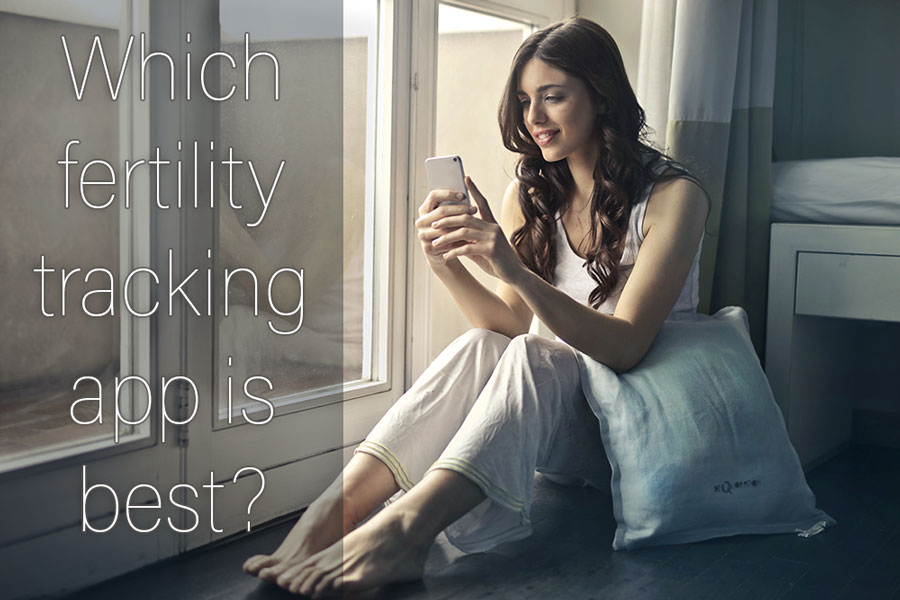Want to track your fertility digitally?
There’s an app for that. Several in fact.
I’ve tried a few different apps, and here’s what I think about them:
#1 Fertility Friend FF
Cost: Free
Download: iOS, Android
This is the first app I ever downloaded to track my cycles, and it’s still my favorite. The interface is the most basic, but it works without WiFi, and it provides you with enough info to fill an encyclopedia. I also believe it has smallest margin of error out of all the apps, and it educates you so you learn as you use it. The app has a wealth of resources like videos, tutorials, and quizzes, and it tracks the basics like temperature and cervical fluid in addition to about 20 other symptoms/signs. If you’ve read the book “Taking Charge of Your Fertility” (which you should), this app goes along with it and is the most seamless experience to applying what you learn in the book.
#2 Natural Cycles
Cost: One month free trial, then $9.99 per month or $79.99 per year
This app pairs with a thermometer to track women’s basal temperature every day, then uses that data to make predictions about ovulation.
It has gotten a lot of media attention recently, as it is the only certified birth control app. It’s also come under criticism because people are using it as a method of birth control without understanding how their cycles actually work. The app is designed to be used without you having to educate yourself, which I think is folly. The app is only as good as the information you give it. If you don’t understand what information is crucial and you forget to use the app for a day or two, then the app won’t work as well.
Do you remember in school when your math teacher told you that your calculator is only as smart as the information you give it? Just like a calculator, a fertility tracking app is a TOOL. If you don’t give it enough data, it won’t calculate as accurately.
User error is a real thing, and when you’re talking about sex, it means you can get pregnant.
The other criticism I have of the app is that it doesn’t teach you how to predict irregularities in your cycle, such as when ovulation might come early. It says it gets better at predicting your cycles over time, and that’s great and all, but I’d rather know what’s going on than trust an app that’s only as good as the information I give it.
#3 Glow
Cost: $7.99 per month, $47.99 annually, or $79.99 lifetime
This app works well, when the user data is input consistently. Something unique about this app is the emphasis it places on community. There is an active user community, but due to the topic, there are sometimes inappropriate pictures or discussions about sex. I cannot recommend this app for teens due to occasional adult content. If you’re over 18, however, the community aspect might be something you enjoy!
#4 AVA Bracelet & App
Cost: $299 for bracelet (Get $20 off with my link)
Download: iOS, Android
The AVA bracelet is a fertility monitor that you wear when you sleep, which eliminates the necessity to take your basal body temperature every morning. The bracelet, instead, monitors slight changes in skin temperature throughout your cycles, in addition to resting pulse rate, breathing rate, heart rate variable ratio, and sleep quality.
Their website says, “Ava is a clinically tested device that uses sensor technology to reveal what’s really happening with your cycle—whether you’re trying to conceive, pregnant, or just want to better understand your body. Worn only during sleep, Ava eliminates the guesswork around tracking your cycle. Syncs with iPhone and Android. Tested for cycles 24 – 35 days. Not tested for PCOS.”
Overall, I thought AVA was pretty accurate when compared against my own data from charting. Because it’s a bracelet you wear at night, you don’t have to remember to take your temperature in the morning, but you DO have to remember to put on the bracelet before falling asleep.
Something else that’s cool is if you have an HSA or an FSA, you may be able to get reimbursed for the cost of Ava. Use this link to get $20 off.
Conclusion:
Fertility apps are a convenient and easy way to carry your chart around with you in your pocket, so you always know when you’re fertile or not. (Plus, having your chart on your phone makes it a lot easier to be spontaneous, if you know what I mean. *wink wink*)
My favorite app is Fertility Friend with AVA as a close second.
However, all apps have the potential to be inaccurate due to user error. That doesn’t mean they don’t work. It just means you also need to know what’s going on and understand the signs your body is giving you 24/7.
For example, I use temperature to tell me when ovulation has PASSED. But I use the cervical fluid sign to tell me when ovulation is APPROACHING.
Once you understand the signs, YOU will do a FAR BETTER job than any app of interpreting when you’re fertile.
I KNOW that there have been times when my app has told me it’s safe to have sex, but really I’ve been at peak fertility!!! If I didn’t understand the basics myself, I could have gotten pregnant!
Don’t take chances.
Learn to read the signs yourself, and use the app as a tool, but don’t rely on it exclusively.











I’m curious, have you seen or tried the Clue app?
I have not.